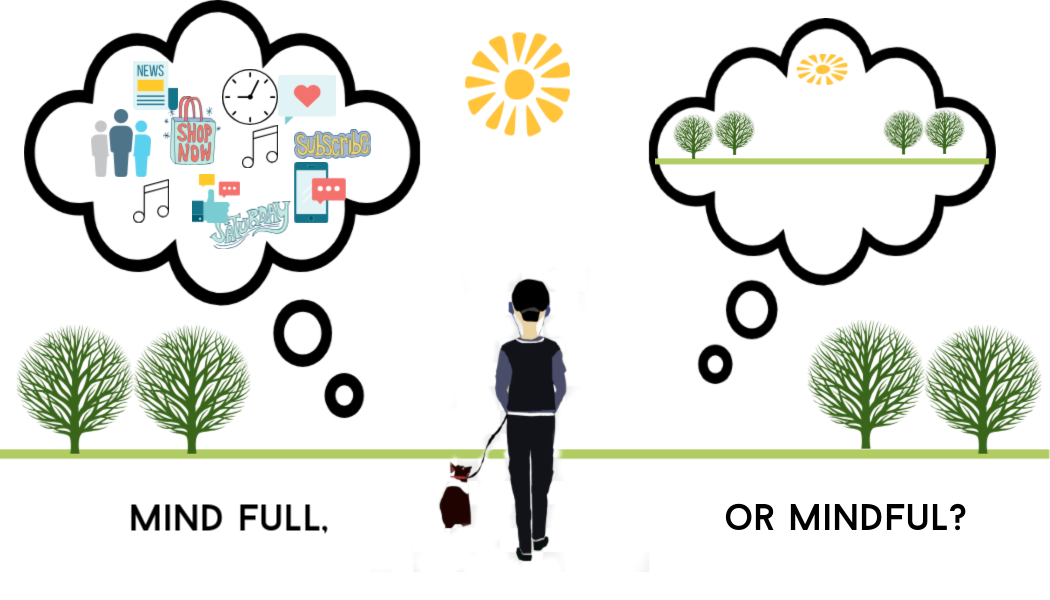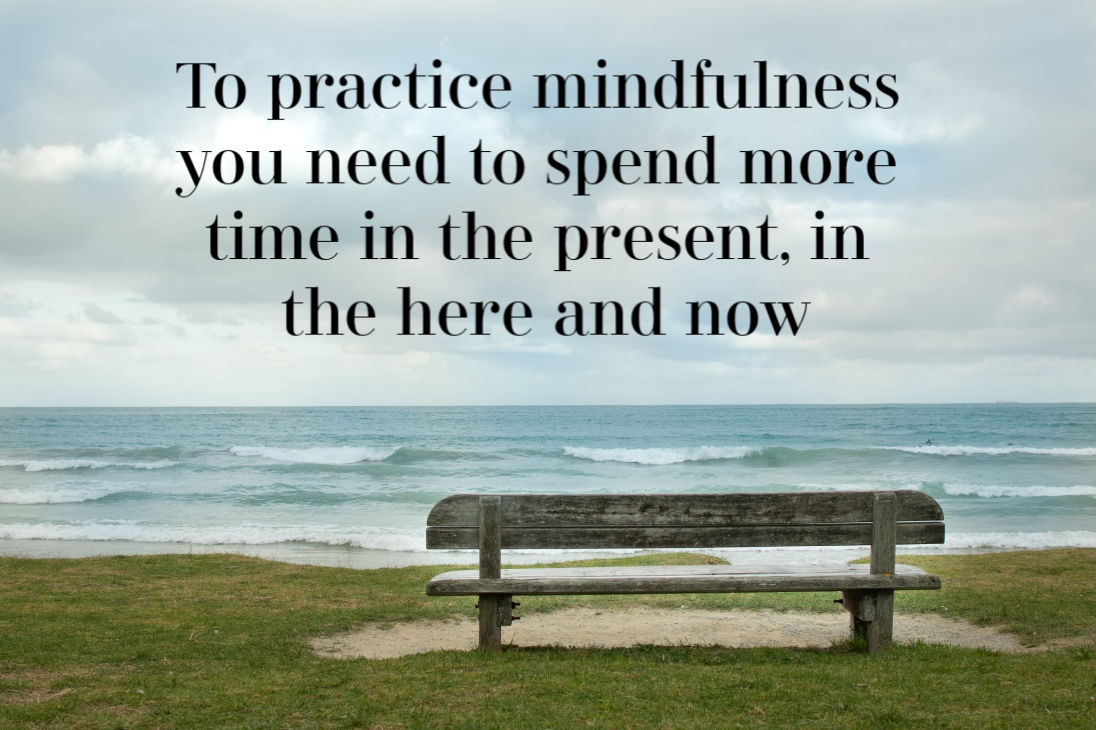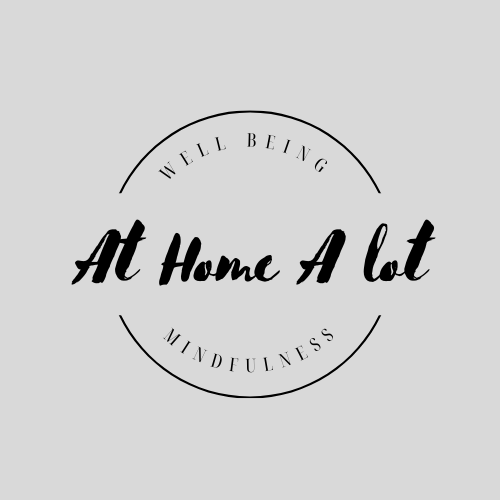mindfulness ˈmʌɪn(d)f(ʊ)lnəs/ noun
- 1. the quality or state of being conscious or aware of something. “their mindfulness of the wider cinematic tradition”
- 2. a mental state achieved by focusing one’s awareness on the present moment, while calmly acknowledging and accepting one’s feelings, thoughts, and bodily sensations, used as a therapeutic technique.
When practising Mindfulness you are in the here and now, you are not lost in thought, or being distracted or being overwhelmed by difficult emotions. It is a form of meditation where you are aware of your surroundings.
We spend a lot of our time being lost in thought, and a lot of those thoughts can be negative making us unhappy. Why do we spend so much time doing something that is potentially harmful to our mental well-being? It can take as little as 10 minutes per day to make an impact on our lives. Just 10 minutes of mindfulness to give our minds a rest and help it become more clear, to keep us in the present moment and to learn how to deal with the negativity and unhappiness in our lives.
When you are not acting in a mindfulness way your mind is trapped on categories drawn in the past and characterized by reliance on distinctions. You see things in a single perspective and are insensitive to context.
Do you frequently make silly mistakes, even at the most basic level, perhaps you forget to put your teabag in your cup when making a cup of tea? This is a state of mindlessness where you are letting your thoughts override your actions, when you are not in the present moment and thinking about what you are doing but relying on past routine.
People who are not mindful get trapped by their past thoughts and emotions and find it difficult to move on. They are either thinking about the past or the future so much that they forget about the present. You need to be in the present more for a healthier way of dealing with past and future emotions.
When you are mindful you are situated in the present and are sensitive to context and perspective. You are guided by rules and routine but not governed by them. You will experience engagement. It is a fact that most of our suffering, both psychological and physical is a direct or indirect effect of mindlessness.
By challenging mindlessness we can become more aware of the present and change the way we react to social and cultural cues.We can change ingrained behaviours that sap health, creativity, optimism and vitality from our lives.

So, how do we become more mindful?
You need to start with yourself. Ask yourself how people see you and then how you see yourself. Then challenge the differences. Work out exactly what is most important to you in your life right now, write a list, then whittle it down. Once you are more aware of who you are and what you want you can begin to become more mindful.
To practice mindfulness you need to spend more time in the present, in the here and now. Stop letting thoughts and worries control the way you behave. The more you think about something the more worrying it becomes. It’s like a toothache, your tooth hurts and you become aware of it, so you think about it more, then you rub your poorly tooth with your tongue and there it is again, the pain. It hurts, so you think about it more and the more you think about it the more it hurts. It’s definitely not easy to stop thinking about it, or prodding it with your tongue, but if you become distracted by something else isn’t it a fact that it hurts less, or you forget that it hurts?
Mindfulness is like that, you know you have problems and worries but you have to spend a little time not letting them dominate your thoughts so you can forget about the pain they cause you for a while. You need only subtle shift in your thinking, your language and your expectations to begin to change ingrained behaviours.
How to practice Mindfulness.
In just 10 minutes a day you can begin to transform your life and learn to spend more time in the present. This is done by meditation, but don’t worry, you don’t have to get your carpet out and burn the incense. You don’t need to clear your mind and think of nothing. You don’t need to fill your mind with chanting . There is nothing wrong with these methods of meditation but most people find it really difficult, I know I do.
Mindfulness meditation means putting yourself in the present. You need to spend 10 minutes a day just being in the here and now. Do nothing for 10 minutes.Switch off your phone and any other distractions. Maybe go out and sit on a bench somewhere, or stand in the park. Then simply listen and observe and be in the present. Don’t think, don’t talk, don’t plan, don’t judge. Take in your surroundings. If you feel a thought coming up then accept then let it go. Witness your thoughts and emotions coming and going without judgement but with a relaxed calm mind. It’s not an easy thing to do, but just try it regularly and with time it should get easier.
The Benefits of Becoming More Mindful.
Being more mindful means you can stop doing things governed by rules and routine and make less mistakes by being more aware of where you are and what you are doing. You will be able to change ingrained behaviours and learn how to deal with things differently. You will be able to challenge the limits that you assume are real and transform your life. You will have a greater sense of focus, calm and clarity in your life. All you have to do is spend some time in the present and understand that your thoughts do not control you because you can control them.

As well as Mindfulness you might want to discover the benefits of Positive thinking. You can find a brilliant article here on Emotionally Healthy Kids.
If you are interested in finding out more about Mindfulness there are lots of books to choose from.
Mindfulness for Health: A practical guide to relieving pain, reducing stress and restoring wellbeingThe Little Book of Mindfulness: 10 minutes a day to less stress, more peace (MBS Little book of…)
Mindfulness: A practical guide to finding peace in a frantic world
A Year of Mindfulness – Challenge yourself to be more mindful for a whole year!
You Are Not Your Thoughts: The Secret Magic of Mindfulness











Firstly, love your blog and first time on it I think. I need to be more mindful. I can get so down on myself even though others tell me I am OK. I did a guided meditation yesterday and it calmed me but I need to make mindfulness something I do every day I think. Thanks so much for this post – potentially life-changing #MMBC
Thank you Kate, that’s very nice of you x
So interesting, well explained and so practical, Anne! #ThatFridayLinky
Thank you Enda, it’s so simple, yet it can be so difficult to get your head around mindfulness.
I can let go of the past easily enough, but I do find myself thinking about the future a lot. Not in a worried way, but it can still make me distracted in the moment so that’s something I need to work on.
Debbie
Lovely blog Anne! I love mindfulness practice and I think my gardening is a perfect mindfulness practice. Have you discovered Hayley over at http://www.missionmindfulness.com. ? #thatfridaylinky
Mindfulness is something I could be doing with at the moment! Too much going on in my head. Think I may give practicing it a try!
#ThatFridayLinky
Hi Anne! Have only just realised this is your other blog, it’s lovely by the way!
I certainly need to practice mindfulness more. I feel like I can do it best when I’m doing the gardening where it is peaceful. I find it really calming after the crazy chaos in our house!
Have a lovely weekend. x #MMBC
ah yes, it’s still in the early stages but I have plans 🙂
Great explanation of mindfulness! I definitely need frequent reminders to practice mindfulness.
This is a great explanation of Mindfulness. I need to practice it more. x
Thank you for explaining in such helpful detail. I find it hard to stay present sometimes, we all need to practice mindfulness more.
Great post. I am so guilty and have lots of examples of mindlessness. I’ll forget the teabag or drive to the wrong place etc! Practising mindfulness is definitely needed. Very useful advice. Thank you xxx
Yoga has helped me so much with this. I have been practicing at home a lot but recently started classes again and it has really helped me to quieten my mind and just be present.
Thank you for this insightful and relatable introduction to mindfulness. Your analogy of mindlessness leading to everyday mishaps, like forgetting to put a teabag in the cup, effectively illustrates how easily we can become disconnected from the present moment. The suggestion that just 10 minutes a day of mindfulness can make a significant impact is both encouraging and accessible. I appreciate your emphasis on the importance of self-awareness and the practical steps you’ve provided to cultivate mindfulness. This piece serves as a valuable reminder of the benefits of being present and the positive changes it can bring to our daily lives